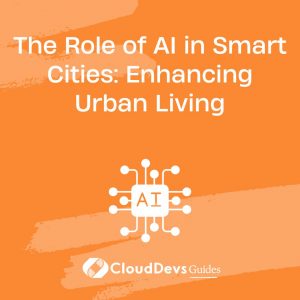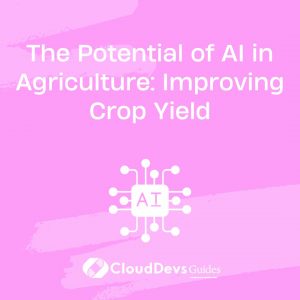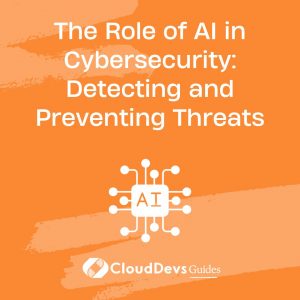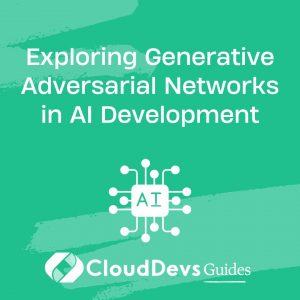The Role of AI in Smart Cities: Enhancing Urban Living
In an era defined by technological advancements, the concept of smart cities has emerged as a promising solution to the challenges posed by rapid urbanization. As the world’s population continues to gravitate towards urban areas, cities are faced with the task of efficiently managing resources, infrastructure, and services. Enter artificial intelligence (AI), a game-changing technology that is revolutionizing the way cities operate and enhancing the quality of urban life. In this article, we will delve into the multifaceted role of AI in smart cities, exploring its applications, benefits, potential challenges, and the transformative impact it brings.

1. Understanding Smart Cities and AI Integration
1.1. What are Smart Cities?
Smart cities represent an innovative approach to urban planning and management, leveraging technology to optimize various aspects of city life. These cities harness data and connectivity to enhance the efficiency of services, improve resource allocation, and ultimately create a more sustainable and convenient environment for residents. The integration of AI in this context marks a pivotal shift, enabling cities to harness the power of data-driven decision-making and automation.
1.2. The Role of AI in Smart Cities
AI serves as the backbone of smart cities, powering a plethora of applications that streamline operations, enhance safety, and foster sustainable growth. Let’s delve into some key areas where AI is making a significant impact:
1.2.1. Smart Infrastructure Management
Efficient infrastructure management is paramount to the success of any city. AI-driven solutions enable real-time monitoring of critical infrastructure such as roads, bridges, and utility systems. By analyzing data from sensors and IoT devices, AI can predict maintenance needs, detect anomalies, and even suggest optimal traffic management strategies. For example, the city of Barcelona implemented a smart lighting system that adjusts illumination based on real-time data, saving energy and reducing light pollution.
python
# Example: Smart lighting control using AI
def adjust_lighting(data):
if data['ambient_light'] < 50:
turn_on_lights()
else:
turn_off_lights()
1.2.2. Intelligent Transportation Systems
AI revolutionizes transportation within smart cities by enabling efficient traffic management and reducing congestion. Machine learning algorithms process data from traffic cameras, GPS devices, and sensors to predict traffic patterns and suggest alternate routes. This not only saves time for commuters but also reduces emissions and fuel consumption.
1.2.3. Sustainable Energy Management
Sustainability is a cornerstone of smart cities, and AI plays a pivotal role in optimizing energy consumption and production. AI algorithms analyze energy usage patterns and weather forecasts to regulate the operation of streetlights, HVAC systems, and other energy-intensive assets. This contributes to significant energy savings and a reduced carbon footprint.
1.3. Benefits of AI Integration in Smart Cities
The marriage of AI and smart cities bestows numerous benefits upon urban dwellers and city administrators alike. Some of the notable advantages include:
1.3.1. Efficient Resource Allocation
AI-driven insights empower city administrators to allocate resources like water, electricity, and public transportation more efficiently. By analyzing usage patterns and demand fluctuations, AI helps prevent wastage and ensures a steady supply to residents.
1.3.2. Enhanced Public Safety
AI-enabled security systems, comprising facial recognition, predictive policing, and gunshot detection, bolster public safety and emergency response efforts. These systems can swiftly identify and respond to incidents, mitigating potential threats.
python
# Example: AI-powered gunshot detection
def detect_gunshots(audio_data):
if AI_model.detect(audio_data):
notify_law_enforcement()
1.3.3. Improved Quality of Life
Smart city AI applications elevate the quality of life for residents. Intelligent waste management reduces litter, noise, and pollution. Additionally, optimized transportation systems lead to less congested roads and shorter commute times.
1.4. Challenges on the Path to AI-Powered Smart Cities
While the potential of AI in smart cities is immense, there are challenges that need to be addressed:
1.4.1. Data Privacy and Security
AI relies heavily on data, raising concerns about privacy and security. Cities must implement robust cybersecurity measures to safeguard sensitive information and prevent unauthorized access.
1.4.2. Digital Divide
Not all residents have equal access to technology, leading to a digital divide. To harness the full potential of AI in smart cities, initiatives must be in place to ensure that benefits are accessible to all socioeconomic groups.
Conclusion
The integration of AI in smart cities marks a paradigm shift in urban living. By harnessing the power of data and automation, cities can optimize services, improve sustainability, and create a more livable environment for their residents. While challenges exist, proactive measures can mitigate risks and ensure that the benefits of AI are widely shared. As technology continues to evolve, the potential for AI-powered smart cities to shape the future of urban living remains boundless.
In conclusion, AI is not just a buzzword in the context of smart cities; it’s the driving force behind a new era of urban development. As cities continue to grow and face complex challenges, AI emerges as the key to unlocking efficiency, sustainability, and improved quality of life for millions of people. By embracing AI’s potential and addressing its challenges, we are paving the way for a smarter, brighter future in our cities.
Table of Contents









